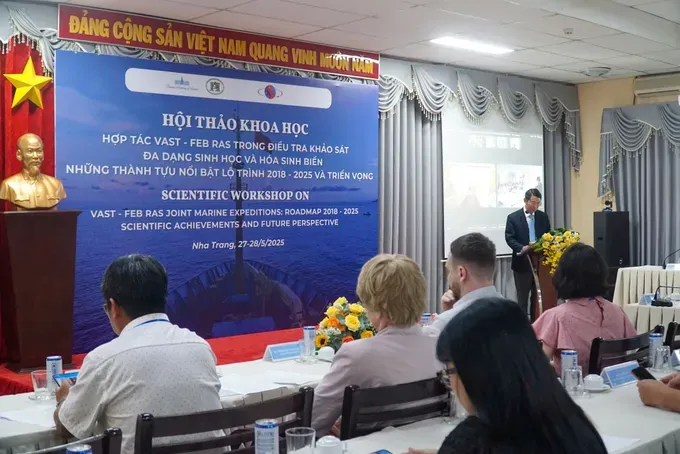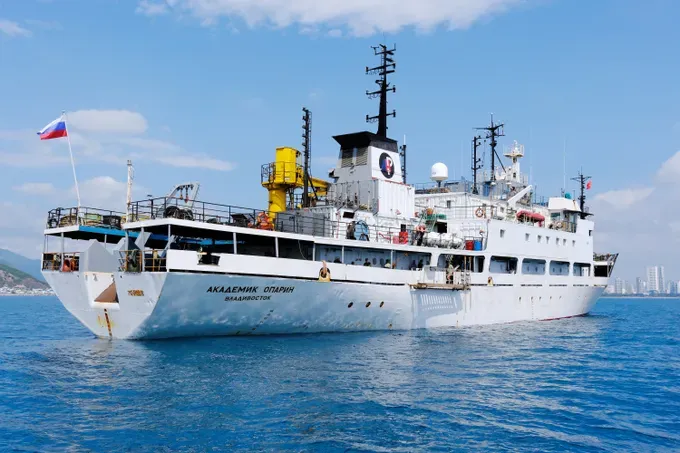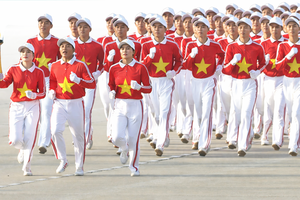
The information was provided at a scientific workshop hosted by the Vietnam Academy of Science and Technology (VAST), in collaboration with the Far East Branch of the Russian Academy of Sciences (FEBRAS) on May 28.
The scientific workshop, themed “VAST- FEB Joint Marine Expeditions: Roadmap 2018-2025 Scientific Achievements and Future Perspective”, took place at the Institute of Oceanography in Nha Trang City, Khanh Hoa Province.
It aims to review the outcomes of their joint marine research cooperation program from 2018 to 2025.
As reported at the workshop, over the past eight years, the Russian research vessel carried out four joint surveys at 474 sampling sites across the waters of Vietnam including frontline island areas.
The vessel successfully collected nearly 17,000 marine biological samples, contributing valuable data to the study and conservation of ocean biodiversity in Vietnam’s waters.
Marine scientific research has been a long-standing field of cooperation between the Vietnam Academy of Science and Technology and the Far Eastern Branch of the Russian Academy of Sciences.
Over the past 20 years (2005–2025), the two sides have conducted 10 joint survey expeditions, including nine focused on marine biodiversity and biochemistry using Academician Oparin in Vietnam’s waters.

Over the past ten years, more than 20 young scientists from specialized institutes under the Vietnam Academy of Science and Technology have been sent to Russia for study and research.
As a result of this collaboration, the two sides have jointly released 64 scientific works, including 33 published in ISI-indexed international journals, three monographs and numerous scientific articles.
Professor and Academician Chau Van Minh, President of the Vietnam Academy of Science and Technology, emphasized that the survey expeditions have presented a comprehensive dataset on environmental conditions, biodiversity potential and bioactive compounds in Vietnam’s marine areas. It serves as a crucial scientific foundation for the sustainable management, exploitation and conservation of the country’s marine resources.
Notably, during the ninth survey expedition conducted from May 1 to May 25, 2025, the research vessel collected an additional 6,500 marine biological specimens and 2,500 environmental samples in the southern waters of Vietnam.
The collected data will serve for analyzing marine pollution, detecting the presence of microplastics, identifying persistent organic pollutants, and developing a remote sensing database to support environmental monitoring and the sustainable development of aquaculture.
























